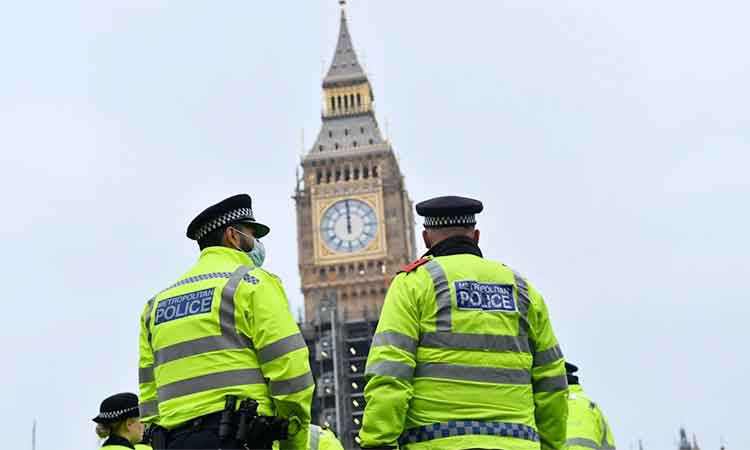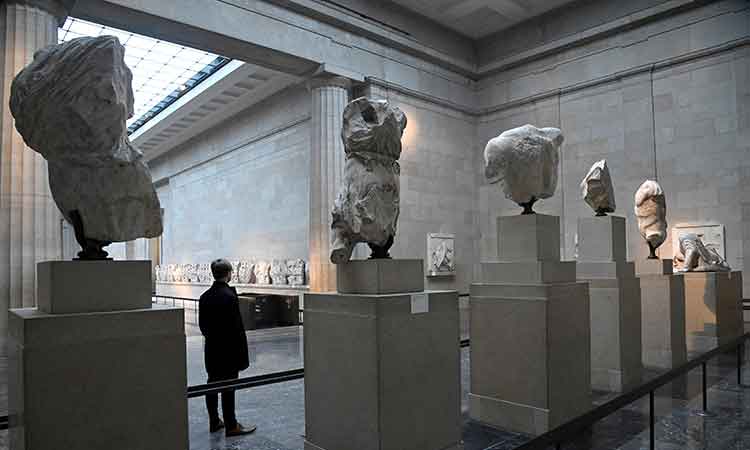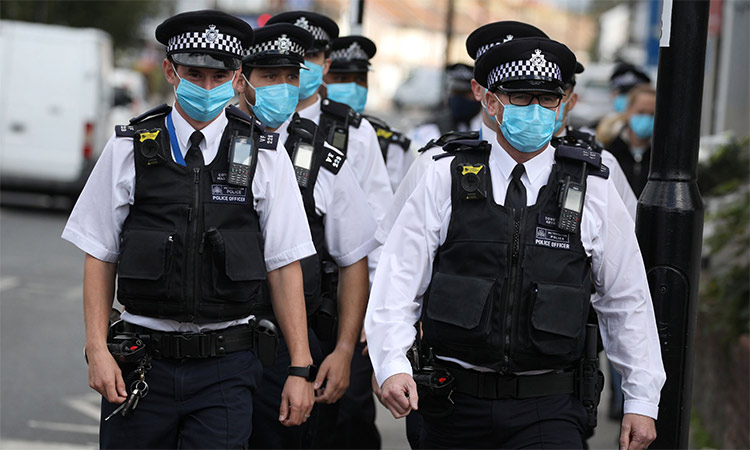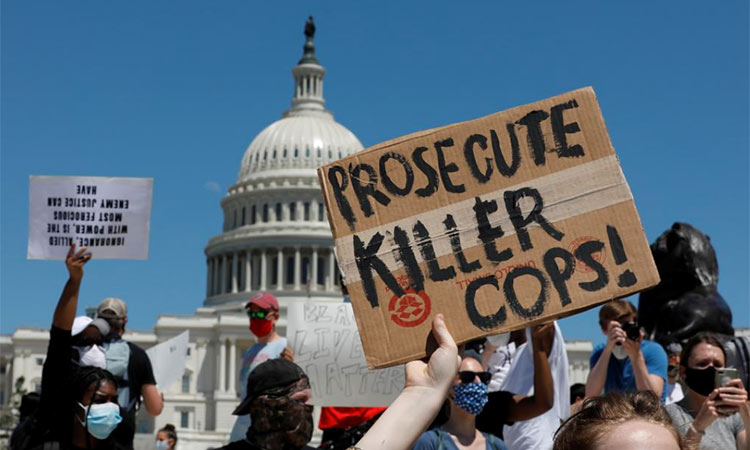Why UK’s policing bill is a knee-jerk measure

Image for illustrative purpose only.
The year is 2023 and, just for the fun of it really, two nice young men with no past history of bad behaviour decide to head down to the big climate change protest. You know, bit of a day out. Maybe they’ll even grab a burger afterwards.
As the throbbing crowds turn right toward Covent Garden, the blazing February sun renders both men temporarily insane. Without even thinking about it, they pick up a statue each, rush down to Waterloo Bridge and chuck them into the Thames.
The gathered masses crushed on to the embankment whoop at the thrill of it all, but then something extraordinary happens. The first statue, a full two and a half tonne’s worth of First World War nurse Edith Cavell, sinks under its own deathly weight and is gone in barely a second.
But the second, a cheap looking Mary Poppins that no one remembers seeing before, appears to be hanging around just beneath the surface. Inside her sensible skirt are clear signs of what looks to be a breaststroke leg kick. Then the statue rights itself, the bonnet breaches the surface and there is its terrified silver face gasping for air.
Up on the bridge, our boys are panicking – one more than the other. He’d known something wasn’t right. That voice he’d heard. That voice saying, “What are you doing? Put me down. I’m a street mime artist.” If only he’d listened, but he was too swept up in the moment.
Anyway, it’s down at the police station that things get really weird. Specifically, it’s when the solicitor turns up and explains what’s probably going to happen now.
“Your mate,” he says with a laugh. “Wouldn’t want to be him. He’s caused criminal damage to a statue so he’s looking at 10 years inside. Your one, turns out it was just a woman! How’s your luck! I’ve had a word with the DS and he says you’re free to go.”
“You’re joking, right?” “Nah. The most they could do you for is common assault, but the most you could possibly get for that is six months, and conviction rates are so low they’re not going to bother to press charges. So go on, off you go. I hope you’ve learned your lesson. And if you haven’t, let me spell it out for you. Statues are more important than women. Right, on your way.”
If you think the above is all a bit farfetched, you’d be right. Such a thing could never happen in Britain. Not today anyway. Not until Wednesday to be exact, when the new policing bill comes into force. It is only coincidence that it should be happening in the middle of the appalling aftermath of the death of Sarah Everard, but it will introduce much tougher sentences for those who carry out violent crime against women, with the one condition that said women are made of marble.
Unsurprisingly, it’s knee jerk legislation of the very worst kind. Knee jerk legislation is always bad, whatever the government doing it, whatever the circumstances. Rarely, if ever before, has any government had the good fortune of real life intervening to demonstrate exactly how and why it’s such a bad idea, just in time for something to be done about it. But, naturally, this particular government, and this particular home secretary, will not take any notice.
Last summer, various protests, but mainly the Black Lives Matter and Extinction Rebellion ones, crossed what the home secretary imagined to be a line. And new guidelines were issued to deal with future, similar events, and as a direct consequence, the public must try and understand why it is that, last summer, the police stood back and watched acts of public disorder, like the toppling of the Colston statue in Bristol. And then, on Saturday night, deployed the use of force to break up a vigil for a murdered woman that had, earlier in the day, been attended by the Duchess of Cambridge.
Of course, there are no easy solutions to the problem of the fear faced by women as they walk the streets late at night. But what can be addressed are the right and righteous feelings of injustice, the sense that these appalling events go on happening and nothing is done, and no one cares.
Protest happens when government fails, and a government whose response is to be tough on protest, but not on the causes of protest, is as short termist as it is possible to be.








